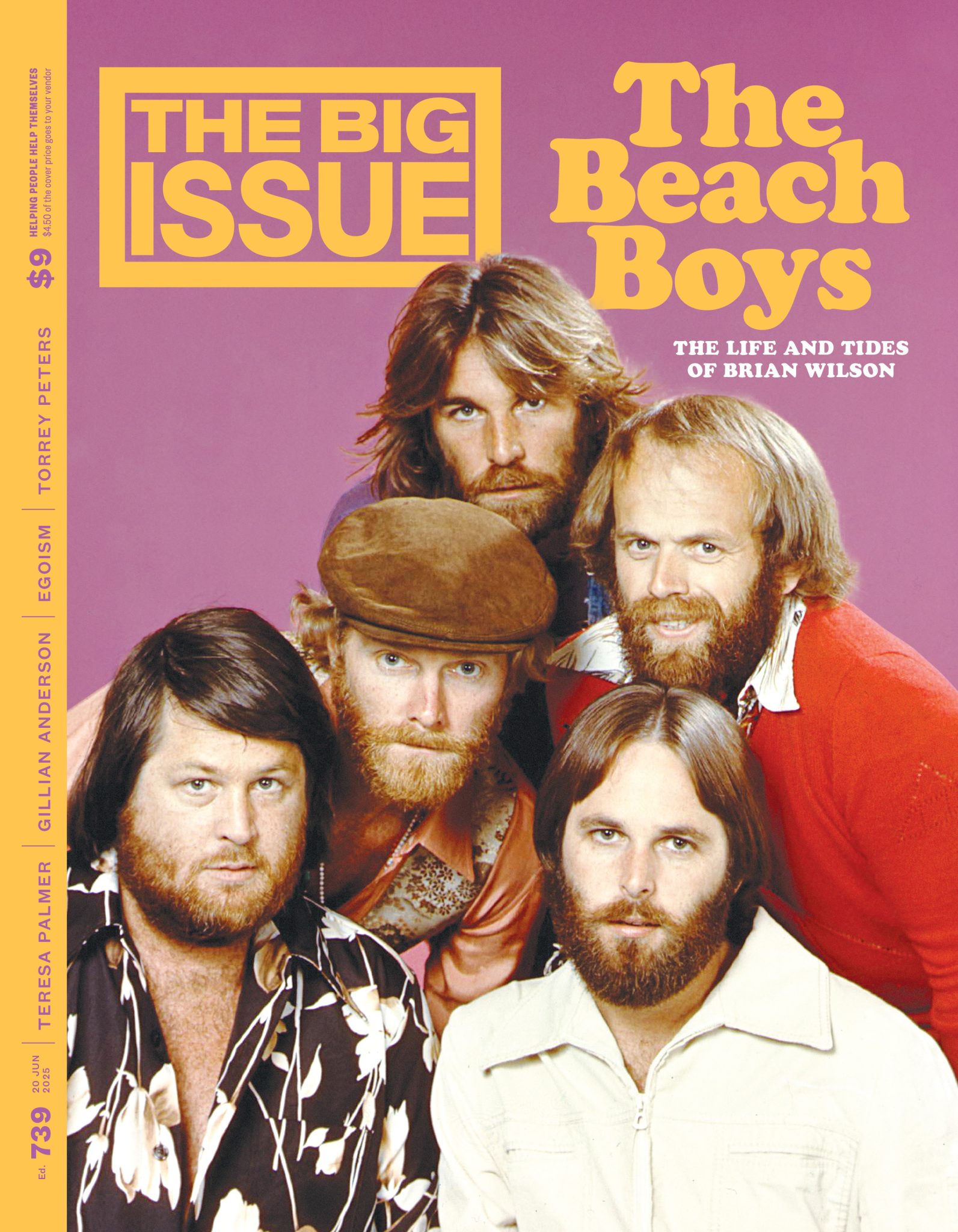From the coffee cliques at university to the caff-fiends huddled outside during lockdown, a cup of joe, to many folks, means community.
I knew what I needed to do to become a grown‑up, but I had been putting it off for years. By the time I got to university, it was clear: coffee was the thing. Drinking coffee, becoming a coffee drinker – the sort of person who said “cup of joe” in an authentic way; who could announce, “Don’t talk to me before my morning coffee!” and you would believe them – would do the trick. It would transform this teenager in band T-shirts and op-shop trousers into an elegant swan of a woman. Someone who wore lipstick and berets, and talked about French philosophers over a steaming cup of mud in a bustling cafe.
The realisation came when I made some friends in my first literature lecture (they had all already read the Sylvia Plath text we were given to study; I had only encountered her name in the background of a scene in 10 Things I Hate About You). They suggested we go for coffee, which is a thing only grown-ups suggest. I couldn’t recall anyone suggesting we go for coffee when I was in high school. That’s what mums do with other mums when they meet up at the shopping centre! We huddled around the coffee cart, making small talk about Sylvia, until everyone had their cups in hand. “Wait, did you get your coffee?” one of the literature girls asked me.
“It’s coming out,” I said, praying that the barista would call out my name instead of my order.
“CHERRY RIPE HOT CHOCOLATE!” the barista screamed.
I accepted the beverage. Everyone laughed. I started laughing, too, but not on the inside. I needed to become a coffee drinker. I needed to fit in. I needed to be a part of this ritual. Did Sylvia Plath drink coffee? I was desperate to find out.
The problem was: I didn’t like the taste of coffee. I hated it, in fact. It tasted like burnt dust! Why do people drink this stuff!? I thought to myself. Why don’t they just sip a jumbo can of energy drink like I do when I need to wake up? It may have given me holes in my teeth, and my heart may, even now, occasionally jump like an overworked bike pump, but it certainly helped me submit my essays on time.
Now it seems ridiculous – who cares if I don’t like coffee! – but back then it felt important, important enough to train myself into liking the stuff. It began with vanilla lattes at Starbucks, which is probably like saying that I taught myself to like cabernet by drinking red cordial concentrate. I soon progressed to lattes – actually learning how to make them at one of my jobs, where being able to make coffee on the office’s big, temperamental Italian espresso machine won you cool points. (God help you if you were one of the losers who made the milk wand scream.)
At my next job I started drinking filter coffee, also available for free in the office, and never looked back. I was drinking mugs of what appeared to be hot oil and, boy, I’d never felt more normal.
Coffee shops haven’t always been a source of shame or literature cliques for me, though. In the past few years, they sort of became a lifeline. During the pandemic, my boyfriend and I moved three times, which made Melbourne’s lockdowns feel even more eerie. Suddenly we were thrust into new neighbourhoods that, by and large, we weren’t legally allowed to explore – except for the coffee shops.
Takeaway coffees were still on, a miraculous loophole that gave us a reason for our daily walks (within 5 kilometres) and the chance to see other humans (masked, with 1.5 metres between us). Did we have the ability to make coffee at home? Yes! Did we also desperately need to leave our apartment just to prove that other people were still out there in the world, existing? Also yes!
This wasn’t like the before times. People waiting outside coffee shops weren’t in their finest coats, chic boots and heavy gold jewellery. They weren’t meeting to network or opine about Sylvia Plath for hours. They were in their tracksuit pants and Ugg boots. Their hair was overgrown and fuzzy (coffee was on, hairdressers were not). Everyone seemed a bit tentative and no-one was talking to each other. But it was still proof of life. All of us together, standing in an oddly spaced semi-circle around the takeaway window of a cafe, pretending that the reason we were here was for coffee, when really it was just to see each other. Without any real self-consciousness about being seen, judging by the pill-y tracksuit pants. Coffee was just the excuse. Community was the thing we craved.
When we moved for the third time, I was too gloomy to join my boyfriend for daily coffee runs. We had been inside for so long and it didn’t feel like there was an end in sight. By the time I worked up the energy to join him on morning walks again, we had been living in the area for three months. When we got to the local coffee shop, the masked barista spotted us and waved with both hands.
“Aw, so this is who you get the extra coffee for!” he said, pointing to me. “I always wondered!”
He seemed like the kind of guy you’d want to be friends with. I wonder if he’s into Sylvia Plath.
by Sinéad Stubbins Deputy Editor
@SineadStubbins
Published in ed#689
